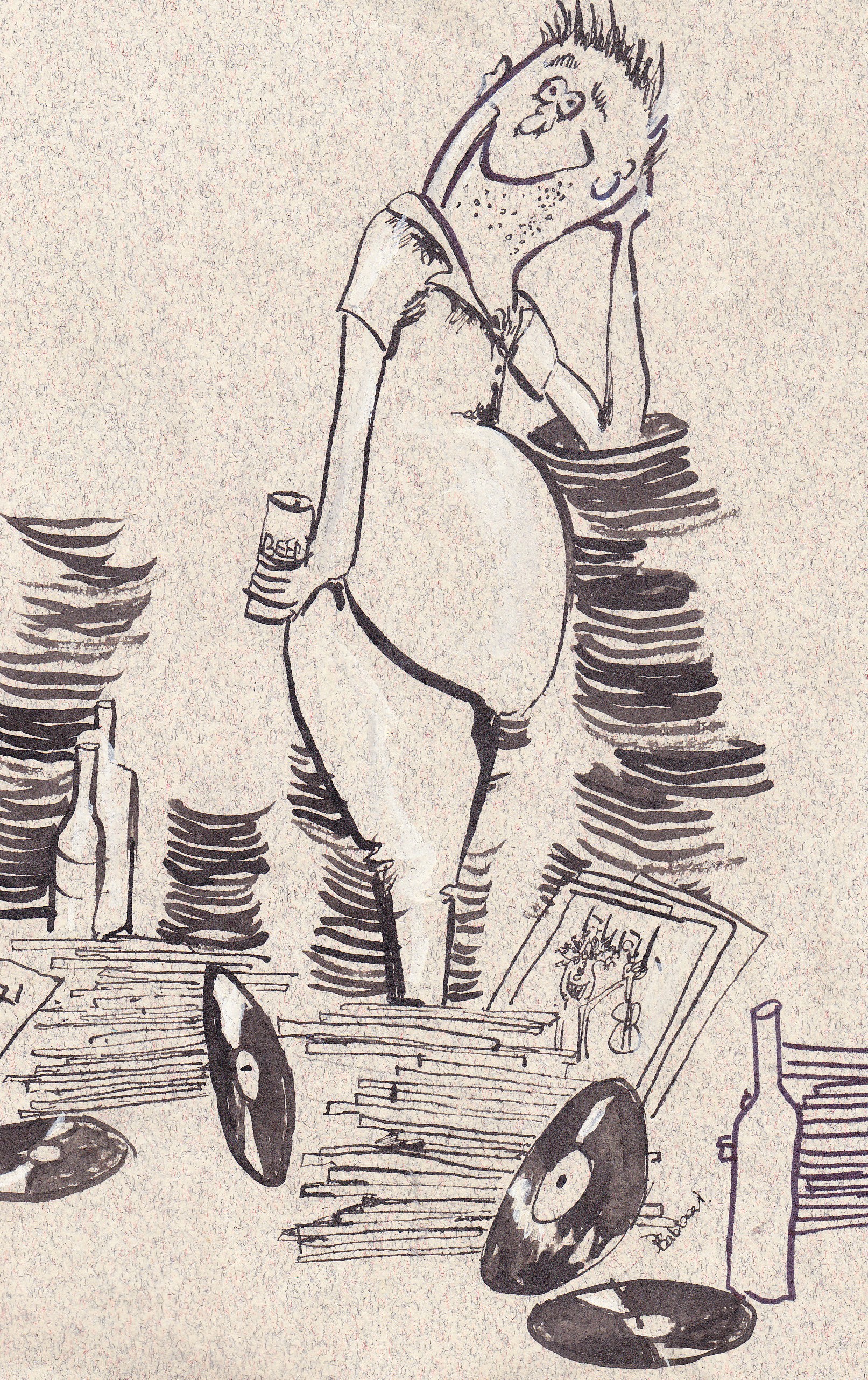Rod Stewart
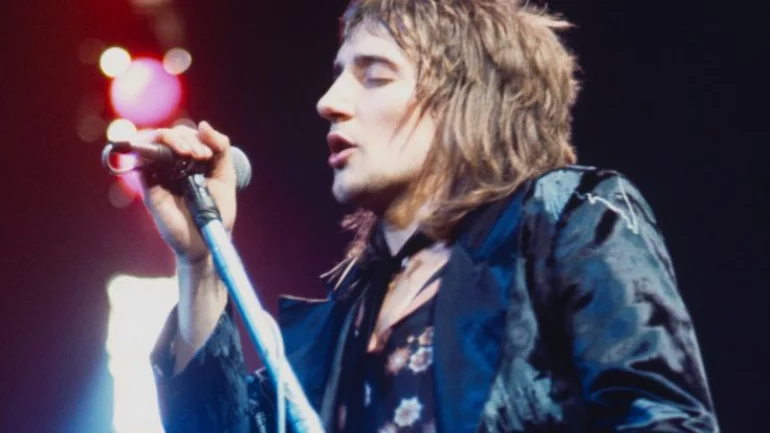
Rod Stewart, His Rise To Fame Took Time...
Rod Stewart hit me one Saturday morning.
It was March 1967. One morning here in Adelaide I was listening to a radio show live from London. This show featured bands playing live in the studio.
This particular morning, the announcer introduced “The Jeff Beck” Group. This made me turn up the radio. I had missed Jeff when I went to see him in the Yardbirds, only to discover another guitarist there in his place, one Jimmyb page.
Anyway, on came The Jeff Beck Group, playing live “I’m Loosing You”
And WOW! Who was that vocalist? I was stunned by the voice.
Of course, I discovered it was one Rod Stewart. I thought if that was the quality of singers in the UK, what hope did other poor vocalists have?
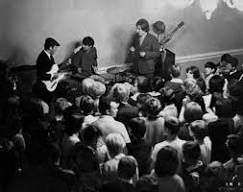 Rod Stewart with the Hoochie Coochie Men at the Basingstoke Town Hall, 1964.
Rod Stewart with the Hoochie Coochie Men at the Basingstoke Town Hall, 1964.From pubs of North London to international superstardom, Rod Stewart's journey is a quintessential tale of rock 'n' roll success. Known for his unique vocal style and raspy voice, Stewart is a legendary figure in the music world, comfortably straddling the realms of rock and pop, and becoming a definitive voice for several generations.
Rod Stewart was born in 1945 in Highgate, North London. Driven by a passion for music, Stewart hitchhiked across Europe merely armed with his harmonica. This exploration sowed the seeds of his future career and individuated his unique singing style, cultivating his tasteful interpretation of rhythm and blues.
In January 1964, while Stewart was waiting at Twickenham railway station having just been to a Long John Baldry and the All Stars show, Baldry heard him playing "Smokestack Lightnin'" on his harmonica Baldry immediately invited him to sit in with the group, discovered She was a singer as well, he offered him a job for £35 a week. From there Rod Stewart overcame his shyness and nerves and became a visible enough part of the act that he was sometimes added to the billing as "Rod the Mod" Stewart (because his mod style of grooming and dress) The band then enjoyed a weekly residence at the Marquee Club in 1964.
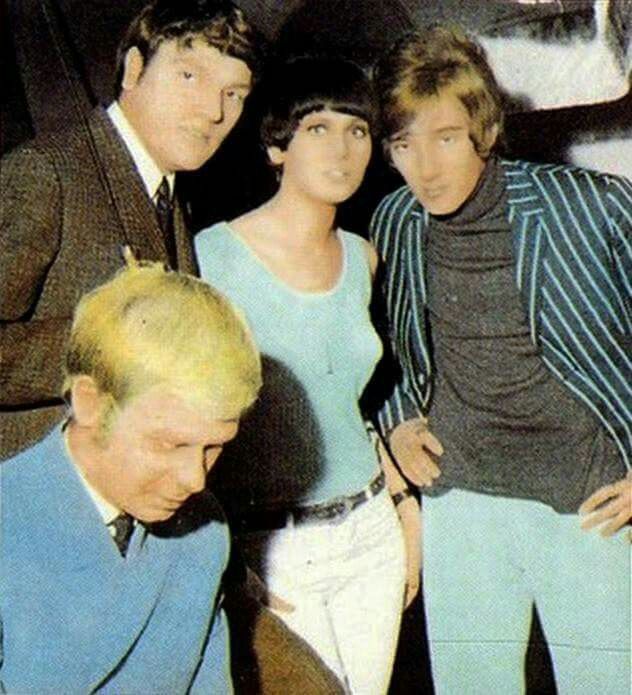 In 1965, Rod Stewart joined Long John Baldry's Steampacket. L to R, Long John Baldry. Brian Auger, Julie Driscoll, and Rod Stewart
In 1965, Rod Stewart joined Long John Baldry's Steampacket. L to R, Long John Baldry. Brian Auger, Julie Driscoll, and Rod StewartThe Hoochie Coochie Men broke up, and legendary impresario Giorgio Gomelsky put together Steampacket, which featured Baldry, Stewart, Brian Auger, Julie Driscoll, Micky Waller, Vic Briggs and Ricky Fenson. Steampacket toured with the Stones and The Walker Brothers that summer, ending in the London Palladium. Seeing the audience react to the Stones gave Stewart his first exposure to crowd hysteria. Stewart, who had been included in the group upon Baldry's insistence, ended up with most of the male vocal parts.
On leaving Steampacket, one reason being the lack of recording opportunities, Stewart then joined a somewhat similar outfit, Shotgun Express, in May 1966 as co-lead vocalist with Beryl Marsden. The other members included Mick Fleetwood and Peter Green (who would go on to form Fleetwood Mac), and Peter Bardens.
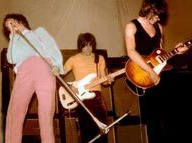 Making a big impression on their U.S. tours: Rod, Ronnie Wood on bass and Jeff Beck.
Making a big impression on their U.S. tours: Rod, Ronnie Wood on bass and Jeff Beck.Rod Stewart Joins The Jeff Beck Group
Then, in February1967, along came Jeff Beck forming a power band after leaving The Yardbirds. Singing alongside the virtuoso guitarist, Stewart exhibited his vocal prowess and unique style, greatly contributing to the band's critical acclaim and commercial fame.
His voice contributed to Becks two classic albums "Truth". (one of my all time favorite's" and "Beck-Ola". On the sleeve of the "Beck-Ola" record, is the following credit: "Rod Stewart-vocals extraordinaire"!
The Jeff Beck Group toured the US six times, then slit. Its hard to imagine, but at the band’s height, it was a tossup who was going to be the next “big Thing”. The Jeff Beck Group or Led Zeppelin. Zep got a few good pointers from The Jeff Beck Group.
The Jeff beck Group folded, on return from another US tour, no one contacted anyone, the band just faded.
Ronnie Wood had replaced Steve Marriott in the Small Faces, and Rod would hang out at their practices, noting they were getting better and better.
Not every member of the band was keen on Rod joining, as there were memories of all the attention previously being all on Stevie. Did they want to have that again with high profile Rod?
Eventually the decision was made, and Rod signed on in late 1970
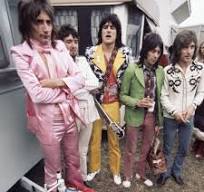 Turning the 4 piece Small Faces into the 5 piece Faces, Rod becomes the lead singer. (L to R) Rod, Ronnie Lane, Ronnie Wood, Ian McLagan and Kenny Joines
Turning the 4 piece Small Faces into the 5 piece Faces, Rod becomes the lead singer. (L to R) Rod, Ronnie Lane, Ronnie Wood, Ian McLagan and Kenny JoinesThe Faces released their final album Ooh La La, which reached number one in the UK and number 21 in the US in 1973. During the recording of the album, the rift between Stewart and the rest of the Faces grew further, as (according to Ian McLagan), Stewart did not participate until two weeks into the sessions, "and then complained that some songs were in the wrong key for him. So we recorded them again and waited a week for him to come back. We cut the track for 'Ooh La La' three times before he eventually passed on it, leaving it for Woody to sing. The week the album came out he did all he could to scuttle it and told anyone who would listen how useless it was." The band toured Australasia, Japan, Europe, and the UK in 1974 to support the album and the single "Pool Hall Richard".
The second Faces album, “Long Player”, released in early 1971 enjoyed greater chart success than “First Step” The Faces also got their only US Top 40 hit with "Stay With Me" from their third album “A Nod Is as Good as a Wink...To a Blind Horse” coming out in late 1971. This album reached the Top 10 on both sides of the Atlantic.
Sharing his journey with the Faces, Stewart also kick-started his solo career. It was during this period that his dominance over the pop charts began. His first album, "An Old Raincoat Will Never Let You Down", got to No. 139 in the US0 followed by "Gasoline Alley", which brose to No.27 US, 24 Australia, and 32 Canada.
At this time, Ronnie Wood was also being "Borrowed" by the Rolling Stones,
Mick Taylor having left the band. Rod used this as a reason to depart the Faces, claiming the band "needed a full time guitar player.
So Rod Stewart became a solo artist.
The release of "Every Picture Tells a Story" marked Stewart's advent as a global music sensation, with "Rod Stewart" becoming a household name. Among its standout tracks is the evergreen classic "Rod Stewart Maggie May," which rapidly secured the number one spot on UK and US charts.
"Maggie May" remains one of Rod Stewart's most adored songs, showcasing his knack for turning personal experiences into universally relatable music - a testament to his timeless songwriting skills. Even today, the song continues to touch millions of hearts and often features on lists of the greatest rock songs.
My Pick of Rod Stewarts Vinyl Albums
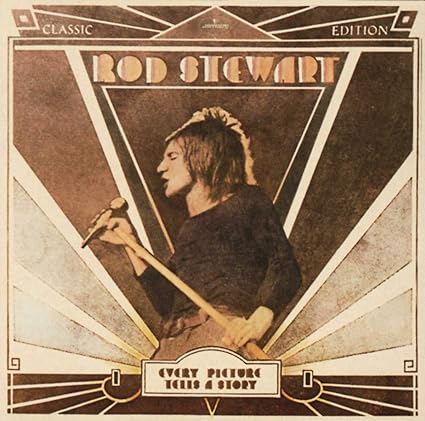
Every Picture Tells A Story
The second Rod album I ever bought. (First "Truth", Jeff beck). The one that introduced Rod to a massed audience. A Truly great album featuring great musicians including Ronnie Wood and drummer Mickey Waller, (who left his symbols behind, so none heard on "Maggie May"). Made Number 1 in the US, UK, and here in Australia. And, it has the first song I ever heard Rod sing..."I'm Loosing You". Why wasn't that on "Truth"? Wonder why the Faces did not do it!!
Still one of my all time favorite albums!!
|
Side 1 1.Every Picture Tells A Story 2.Seems Like A Long Time 3.That's All Right 4.Amazing Grace 5. Tomorrow Is A Long |
Side Two 1 Henry 2.Maggie May 3.Mandolin Wind 4.(I Know) I'm Losing You 4.Reason To Believe |
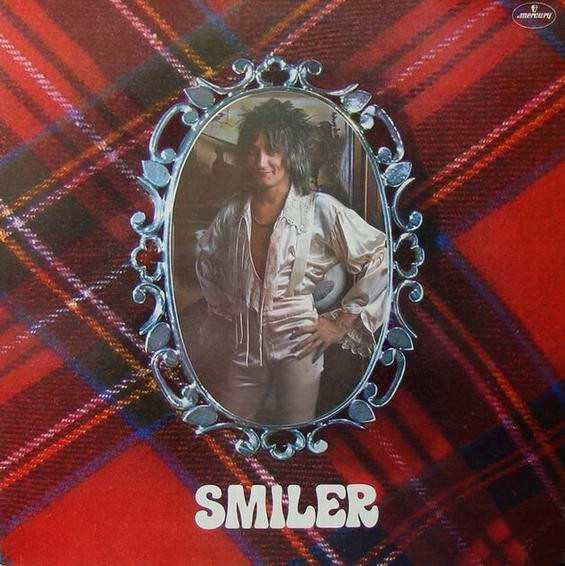
"Smiler"
Amazingly, Smiler is the fifth solo album by Rod, coming out September 1974.. It reached number 1 in the UK album chart, and number 13 in the US. It featured Chuck Berry, Sam Cooke and Bob Dylan songs, as well as a fine duet with Elton John on Eltons "Let Me Be Your Car
As usual Rod used members of The Faces, as well as frequent collaborators Martin Quittenton (guitars), Pete Sears (bass & keyboards), and Mickey Waller (drums).
Reception of the album was not good.
"Rod Stewart's classic formula ran out of gas on Smiler, his fifth solo album. The failure of Smiler wasn't a matter of weak songs, nor was it a matter of Stewart being in poor voice. Instead, the album failed because everything, from the choice of songs to the production, sounded too pat and predictable."
These reviews. and advice from Eric Clapton and The Bee Gees influenced Rod to make a complete change and head to America for his next album.
|
Side 1 1"Sweet Little Rock 'n' Roller" 2"Lochinvar" 3"Farewell" 4"Sailor" 5"Bring It On Home to Me/You Send Me" 6"Let Me Be Your Car" (Elton John, Bernie Taupin) |
Side Two 1"(You Make Me Feel Like) A Natural Man" 2"Dixie Toot" 3"Hard Road" 4"I've Grown Accustomed to Her Face" 5"Girl from the North Country" 6"Mine for Me" |
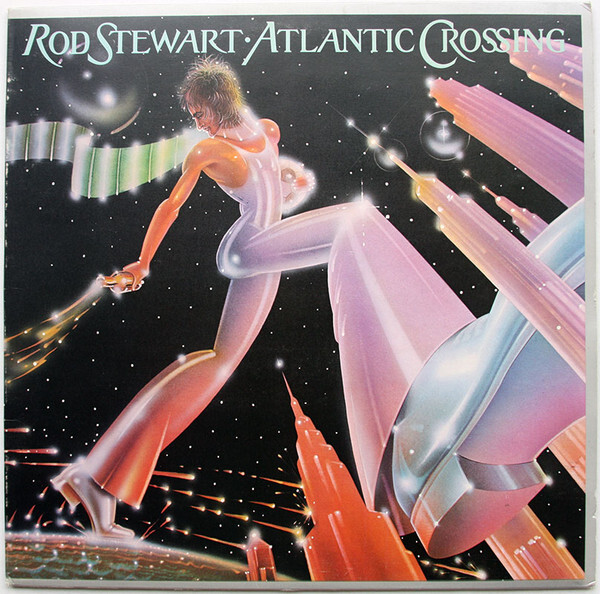
Atlantic Crossing.
Released in August 1975, and recorded in five American studios including Muscle Shoals, Alabama, between April and June 1975, it was produced by Tom Dowd, and peaked at number one in the UK (his fourth solo album to do so), and number nine on the Billboard Albums chart During 1975 Stewart moved to Los Angeles, switched record labels to Warner Brothers, and ended his association with Ronnie Wood, Ian McLagan and the stable of musicians who had been his core collaborators on his albums for Mercury Records.
The album was divided into a fast side and a slow
side, apparently at the suggestion of Stewart's then-girlfriend, Swedish
actress Britt Ekland. Stewart would repeat the format for his next two albums.
The album contained two of Stewart's most popular songs, "Sailing"(Sutherland
Brothers song) and "I Don't Want to Talk About It”, and classic rock numbers "Three Time Loser" and "Stone Cold Sober". This
album was the 6th solo Rod Stewart album.
Enjoy this site? Share with friends!
Rod and The Faces "It's All Over Now".
Live from 1974. Love the very relaxed keyboard man Ian "Mac" McLagen.
